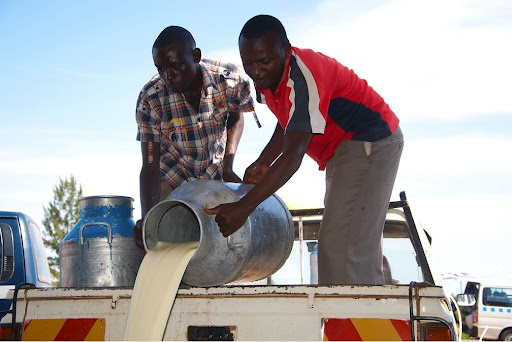Overview
Researchers
Pedro Magana Saenz
Agricultural & Applied Economics PhD Student at the University of Wisconsin
David Henning
Economics PhD Student at UC Los Angeles
- Country
- Uganda
- Timeline
- 09/04/2023 - 08/30/2024
- Constraints
- Credit, Information

Photo Credit: Dick Wåhlin via Flickr
In Uganda, dairy farmers often use transporters, or intermediaries, to transport and sell their daily milk production to cooperatives. The financial transactions are often unrecorded, and because farmers do not have information on daily prices and amounts of milk being delivered, they may not receive optimal returns on their milk production. If farmers have more access to both price and delivery information, they might be able to improve their bargaining position with intermediaries, incentivizing milk deliveries and revenue. This project asks: Do farmers increase milk deliveries in response to detailed price and delivery information along with access to credit? Additionally, how do intermediaries respond when farmers have access to such information?
Researchers are partnering with a Ugandan fin-tech company that provides dairy cooperatives with a digital platform that allows the cooperatives to digitize milk deliveries. This fintech company utilizes the milk transaction information to calculate a personalized credit limit for every farmer. Following this assessment, the company provides digital credit to eligible farmers. Farmers that qualify will be allowed to borrow up to their credit limit, and they will repay their loan using the proceeds from the milk they sell at the cooperative. Participant farmers will receive digital receipts with a personalized daily breakdown of milk price, quantity delivered, and total amount paid, while the comparison group will receive a generic message notifying them when deliveries are made.
Researchers will use administrative data from the fin-tech to assess whether farmers that receive the digital receipts deliver more milk to the cooperative, thereby improving their credit scores and subsequently leading to increases in borrowing limits. The pilot will prepare for a randomized evaluation to generate new evidence on the impact of providing farmers with better and timely information via milk transaction receipts.
This pilot is ongoing, and findings are forthcoming.